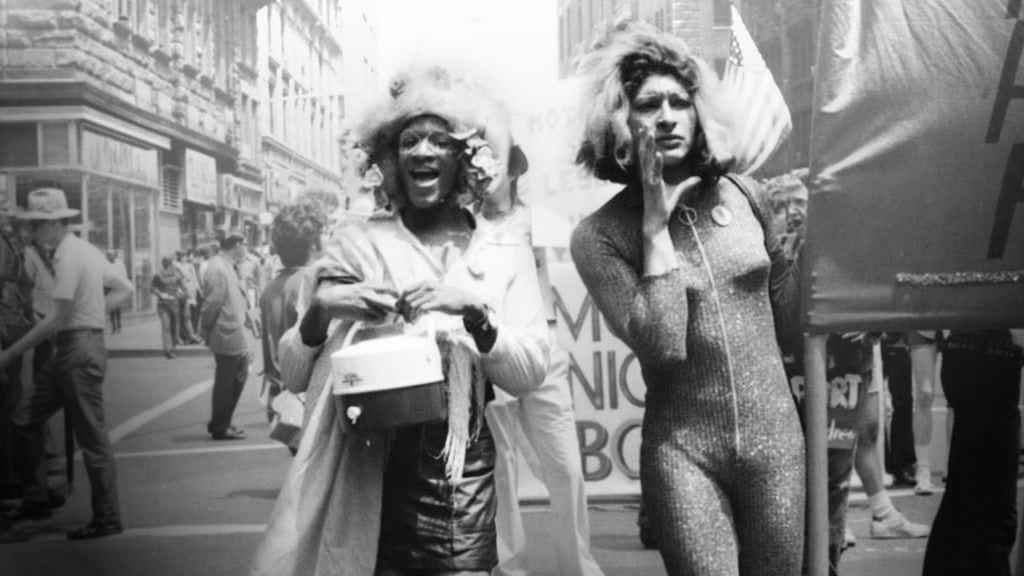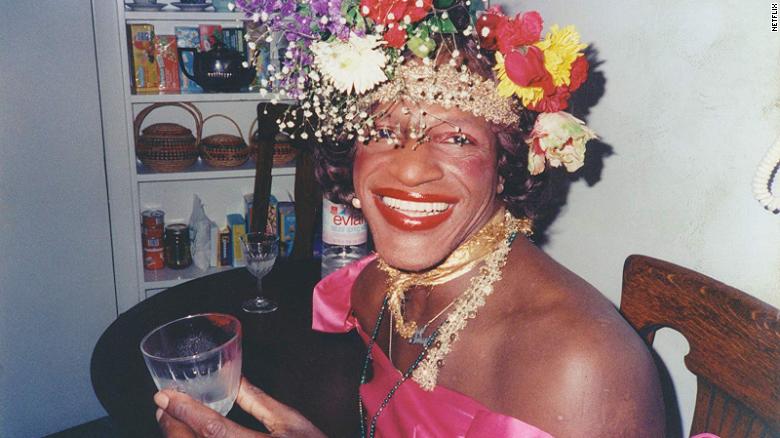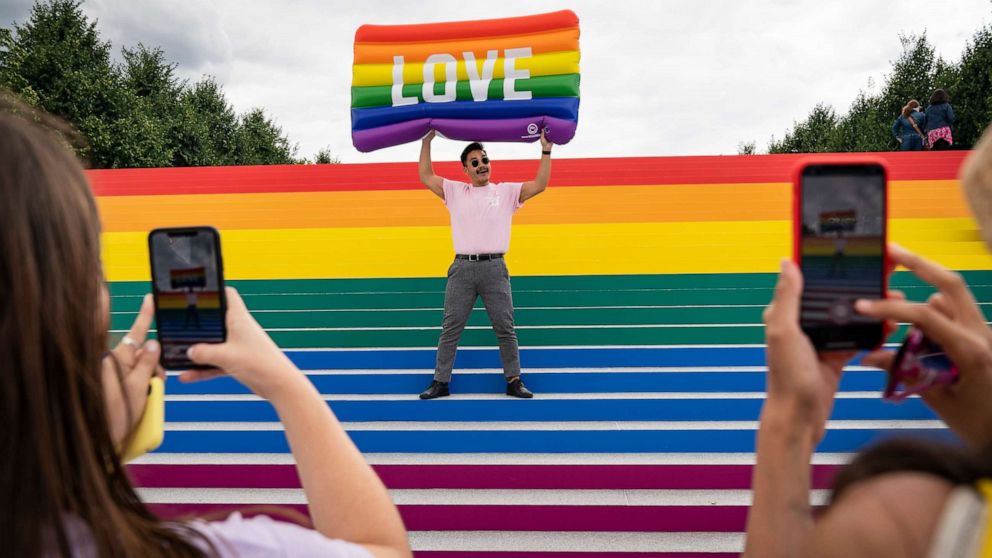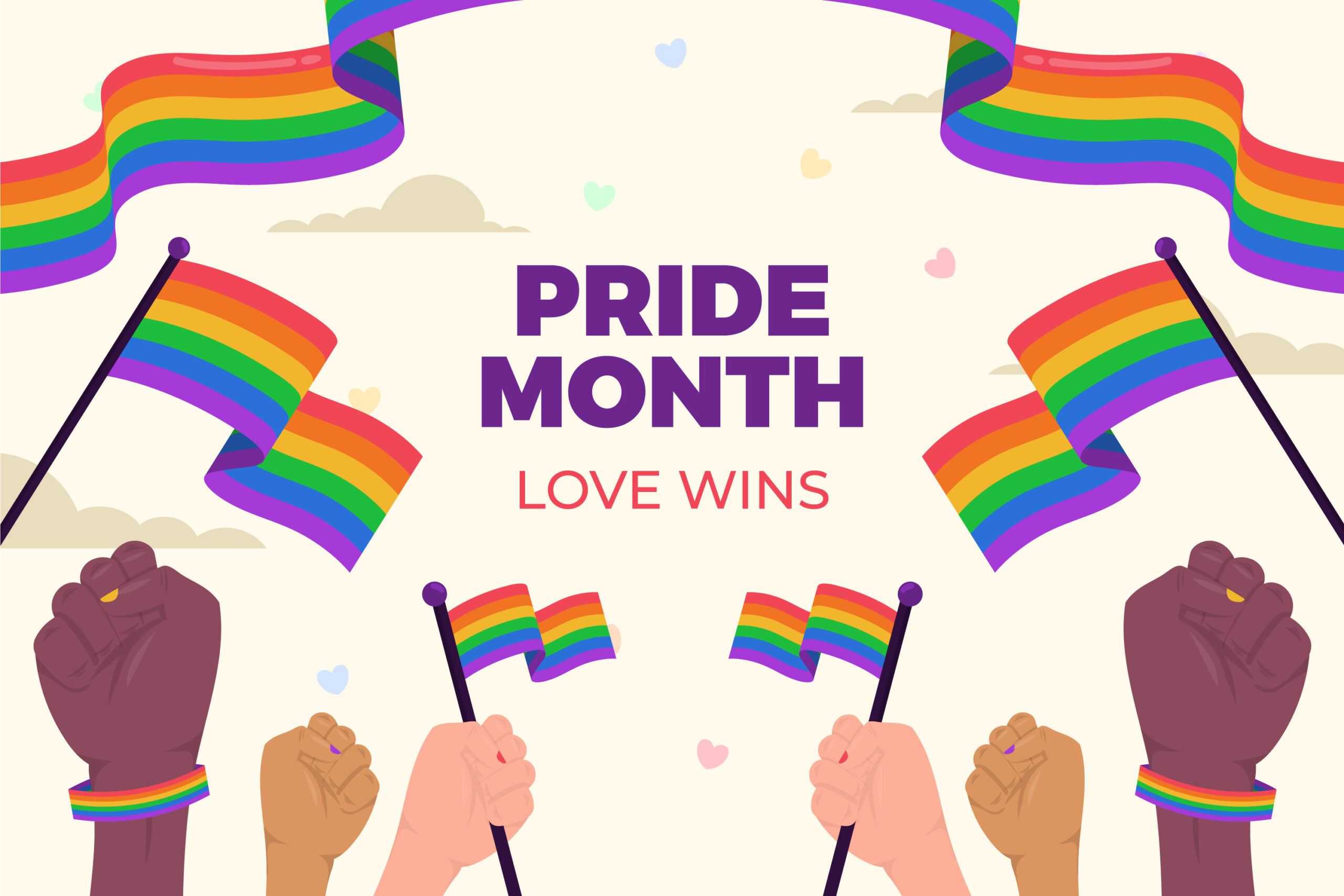By Maria Papagiannopoulou,
Every June, Americans join together to commemorate the 1969 Stonewall Uprising in Manhattan, which is widely regarded as the turning point in the gay liberation movement in the United States. Nonprofits like America’s Charities’ members listed on this page use the month to raise awareness about the current state of LGBTQIAP+ human rights and how their respective organizations are working to protect and advocate for those rights. Events are held all over the country — this year many online to continue observing social distancing — and nonprofits like America’s Charities’ members use the month to raise awareness about the current state of LGBTQIAP+ human rights and how their respective organizations are working to protect and advocate for those rights.
Acceptance, equality, honoring the efforts of LGBTQIAP+ people, learning about LGBTQIAP+ history, and raising awareness of issues affecting the LGBTQIAP+ community are all part of Pride Month. It also reminds people of how harmful homophobia was and continues to be. Pride is defined as being proud of who you are, regardless of who you love.
The year 2022 will be a watershed moment in LGBTQIAP+ history in the United Kingdom. It is time we reflected on what our movement has accomplished fifty years after the inaugural Pride in London. Around 2,000 people marched in the first Pride parade in 1972, demanding LGBTQIAP+ rights. There were numerous other significant events in the 1970s, including the founding of Gay News, Britain’s first newspaper. Switchboard, a London-based information and assistance helpline that continues to operate today, was founded. In Leeds, the first trans conference and the first gay and lesbian Trades Union Congress conference to debate workplace rights were held. Maureen Colquhoun became Britain’s first openly lesbian MP in a landmark moment.

As more LGBTQIAP+ people came out and sought equal treatment in the 1980s, development accelerated. In the UK, we saw the formation of the first Black Gay and Lesbian Group, as well as the first bi group. The Lesbian and Gays Support the Miners movement was founded when Chris Smith became the first openly gay Member of Parliament. However, in addition to growing visibility, the LGBTQIAP+ community in the United Kingdom has encountered pushback. Margaret Thatcher established Section 28, a law prohibiting local governments from “promoting homosexuality” and thus prohibiting the discussion of LGBTQIAP+ topics in schools, in 1988.
More fortunately, Stonewall was created in 1989 to combat Section 28. Same-sex attraction was declassified as a mental disease by the World Health Organisation in the 1990s, and the age of consent for sexual interactions between men was decreased from 21 to 18. Mermaids, a transgender youth organization, is created, and two openly gay MPs are elected in the 1997 elections. In the 2000s, Tony Blair’s government enacted a slew of beneficial laws. The U.K. government lifted the ban on LGBTQIAP+ people joining the armed forces, decreased the age of consent to 16, gave same-sex couples equal rights when seeking adoption, and repealed Section 28 across the UK.
In 2004, the Civil Partnership Act and the Gender Recognition Act were passed, giving same-sex couples the same rights as married couples and allowing transgender people to get new birth certificates. Finally, the Equality Act (Sexual Orientation) Regulations 2007 made it illegal to discriminate on the basis of sexual orientation in the provision of products, facilities, services, education, and public functions.
Gender reassignment was added as a protected feature to the Equality Act in the 2010s. Ruth Davidson became the first openly gay head of a political party in the UK, and same-sex marriage was legalized in the UK The restriction on gay and bi men donating blood was repealed, and the UK government granted posthumous pardons to all males convicted under sexual offenses statutes that made being bi or gay a crime. We also witnessed the first Trans Pride and Bi Pride events in the United Kingdom.

So, it is safe to say that we have come a long way since 1972. By 2019, 1.5 million people had attended London Pride to celebrate and protest in support of LGBTQIAP+ rights. However, looking around now, it is evident that we have not yet achieved equality. Last month, we saw online estate agent Purple Bricks withdraw a listing when the owners of a house in Surrey refused to let two homosexual men visit their home. The owners told Luke Whitehouse that they could not sell the house to “two guys in partnership […] because it goes against God’s gracious message in the Bible”. While we recognize that progress has been made, we must continue to fight backward ideas in society.
Worse yet, we are only a month into the year and we have already seen coverage of the murder of Dr. Gary Jenkins in a park by assailants spewing homophobic hatred. The prosecution counsel, recruited to pursue justice for Gary, claimed in his opening statement that Gary’s “sexual predilections were to be his undoing… he placed himself hopelessly exposed and an easy target”. Despite the fact that stereotypes about gay and bi men being promiscuous are still being used to justify violence and blame the victims of horrific attacks, the lawyer later apologized and Gary’s murderers will be sentenced soon, stereotypes about gay and bi men being promiscuous are still being used to justify violence and blame the victims of horrific attacks. We are still not safe in our own neighborhoods in 2022. Pride marches can be found all around the country, especially in big cities. They are usually all-day affairs with floats, live entertainment, and celebrity appearances.

The rainbow colors are always prominent, and it is nearly impossible to leave a Pride without being covered in glitter. Due to the COVID-19 outbreak, several Pride events are virtually this year, including Brighton Pride for the second year in a row. Despite the fact that June is Pride Month in the United Kingdom, many Pride activities take place in July, August, and September.
So, this year, we will be thinking about what kind of world we want for LGBTQIAP+ individuals today and in the next fifty years. We are now pushing in the U.K. for a complete legal ban on conversion therapy so that no more LGBTQIAP+ people are subjected to this demeaning practice. We are also pushing for improved treatment of LGBTQIAP+ refugees, who deserve not only a safe journey but also a warm welcome when they arrive in our country, as well as equal access to IVF so that LGBTQIAP+ people do not have to break the bank to start a family.
References
- “How Gay Culture Blossomed During the Roaring Twenties”, History, Available here
- “Pride Month: a history of gay rights”, Access Creative College, Available here




